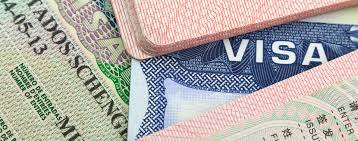International travel has always been shaped not only by geography, culture, and economy but also by the policies that govern who can enter a country and under what conditions. Among these, visa regulations stand out as one of the most influential factors determining the ease or difficulty of cross-border movement. Visa policies influence where people travel, how long they stay, and even how they perceive a country.
Visa Policies as Gatekeepers
Visa requirements act as the first point of contact between a traveler and a destination. Countries with strict visa policies demanding lengthy applications, in-person interviews, or high fees often discourage potential visitors. On the other hand, nations that offer visa-free entry or simplified electronic visas tend to attract more tourists, investors, and business travelers.
For example, the European Union’s Schengen visa system allows travelers to move across 27 countries with a single document, encouraging multi destination trips. In contrast, more restrictive policies in certain regions limit travel flow and reduce global connectivity.
Economic Implications
Tourism is a powerful economic driver, and visa policies directly impact revenue generation. Countries that adopt open visa regimes often see increased tourist arrivals, leading to higher spending in hotels, restaurants, transport, and local attractions. According to the World Travel & Tourism Council, simplifying visa procedures could unlock billions in global tourism income annually.
Conversely, restrictive policies can cost countries potential income. When travelers find the visa process too complicated, they may choose destinations that are more accessible, redirecting their spending elsewhere.
Security vs. Accessibility
Governments design visa policies not just to facilitate travel but also to safeguard national security. Striking a balance between openness and protection is a constant challenge. In some cases, heightened visa restrictions follow global events such as terrorism or pandemics, as seen with additional health requirements during the COVID 19 era. While these policies protect citizens, they also reduce travel flexibility and may discourage genuine visitors.
Diplomacy and International Relations
Visa policies also reflect the diplomatic ties between nations. Countries with strong political or trade partnerships often enjoy reciprocal visa free travel, while strained relationships may result in stricter requirements. For instance, commonwealth or regional blocs often grant relaxed entry to member states, reinforcing unity and cooperation.
Shaping Travel Behavior
Ultimately, visa rules shape how and where people travel. A hassle-free visa process encourages spontaneous travel, business expansion, and cultural exchange. Conversely, lengthy or uncertain procedures push travelers toward destinations with friendlier entry systems. In today’s globalized world, where travelers value convenience, destinations that simplify entry stand to gain the most.
Conclusion
Visa policies remain a critical factor in international travel, balancing security needs, economic interests, and diplomatic relationships. Countries that successfully streamline their visa systems without compromising safety create more welcoming environments for tourists and business travelers alike. As global travel continues to grow, forward thinking visa reforms could play a key role in boosting tourism, strengthening economies, and fostering cross cultural connections.






